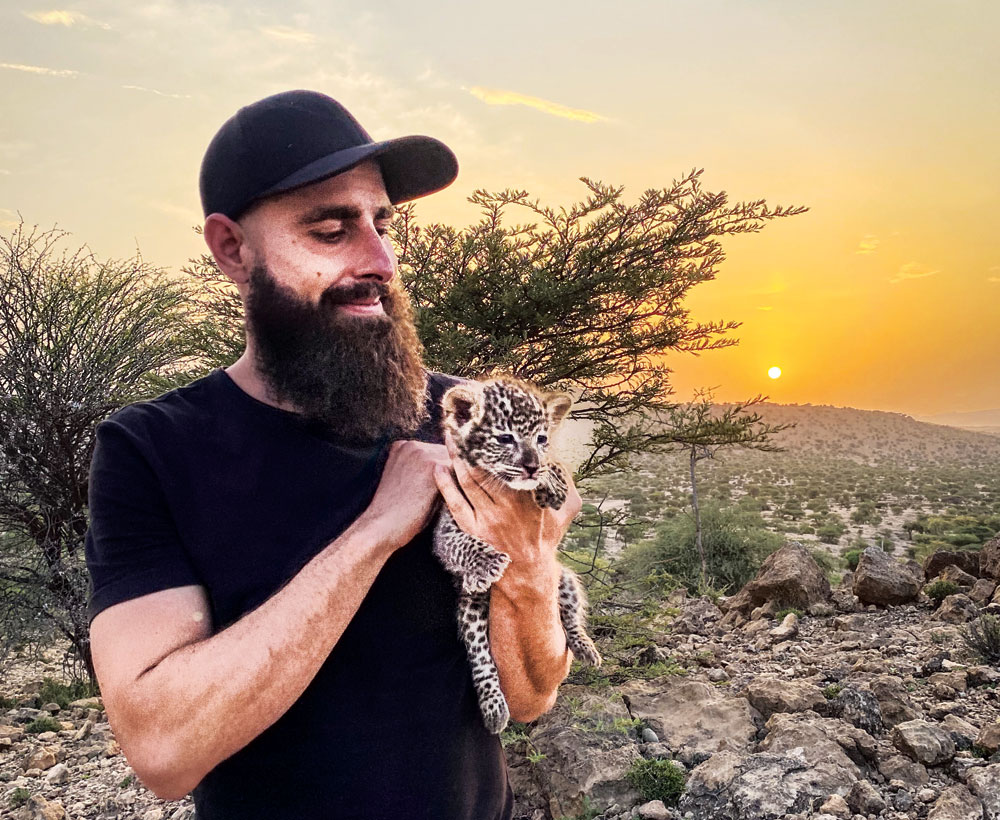
Tomas Maule, holding a leopard cub recovered in Western Somaliland, is the organization’s operations manager and co-founder. Photo courtesy of Tomas Maule
![]()
“My work is not just about animals. It’s about environment, landscape, and community-things that will never come back once they’re destroyed,” said Tim Spalla, co-founder of the Horn of Africa Conservation Alliance. “That’s a powerful motivator for me, but it’s also an aspect of this wildlife crime fight that people don’t think about.”
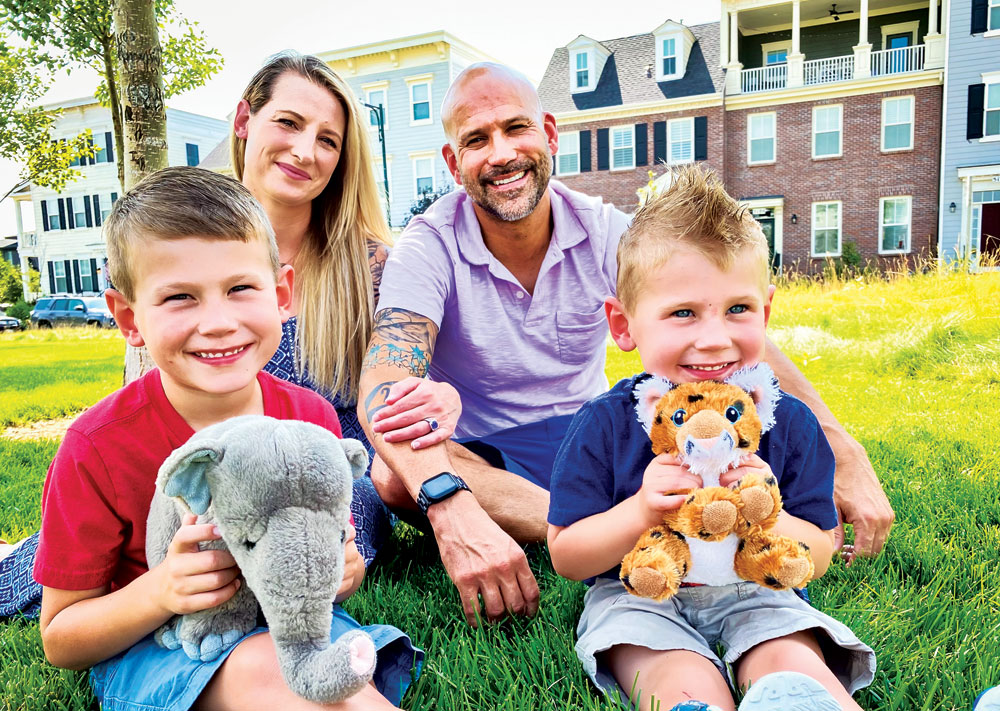
Horn of Africa Conservation Alliance co-founder Tim Spalla is pictured with his family in Central Park. Tim and his wife Ashley, a neonatal intensive care nurse at Denver Health, have two children— Harrison, 6 (left), and Theodore, 4. Front Porch photo by Steve Larson
![]()
To help curb cheetah poaching and smuggling, Spalla and Kenya-based partner Tomas Maule—who have come face-to-face with some of the biggest criminal networks in Africa—have partnered with the Somaliland government and other regional governments to address the problem on multiple fronts. They have been researching cheetah trafficking since 2018 and provide training, mentorship, and logistics support. Through their efforts, numerous cheetah cubs, leopards, and other illegal wildlife products have been recovered.
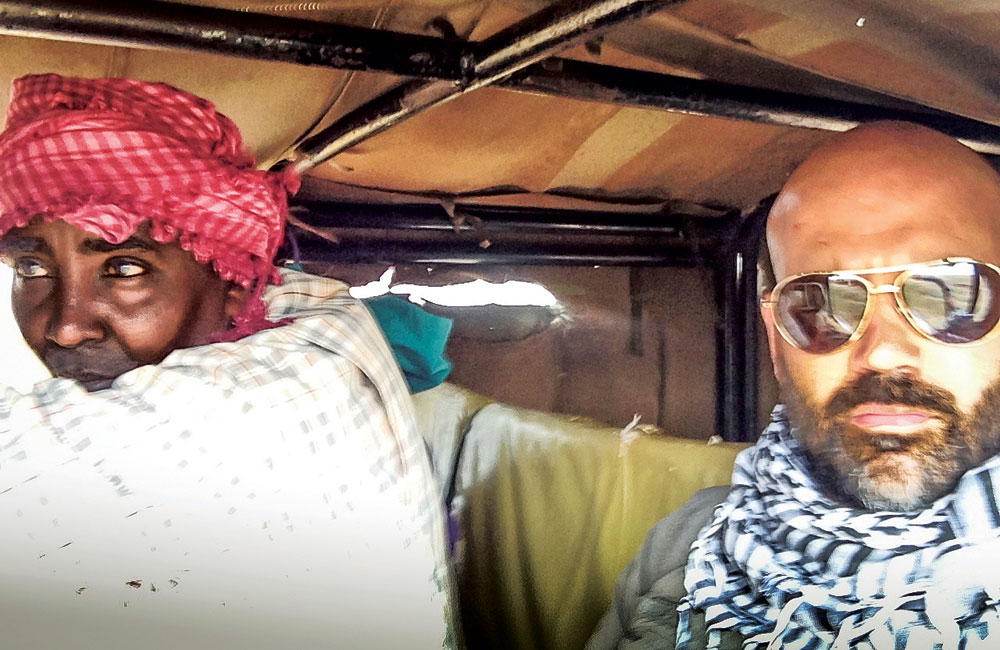
Tim Spalla (right) co-founded the Horn of Africa Conservation Alliance to help regional authorities to protect threatened wildlife, communities and landscapes. Spalla is shown accompanying a local wildlife protection agent as they follow up on information about poachers.
![]()
Spalla says many cheetah-smuggling networks originate in South Sudan, eastern Ethiopia and northern Kenya. “Very few cheetahs that are poached and trafficked are local to Somaliland. We’re already on the ground in Yemen, in the Gulf of Aden. Our intent is to look at the entire chain, from where the cheetahs are poached all the way to where they’re kept in a Gulf state mansion as status symbols.”
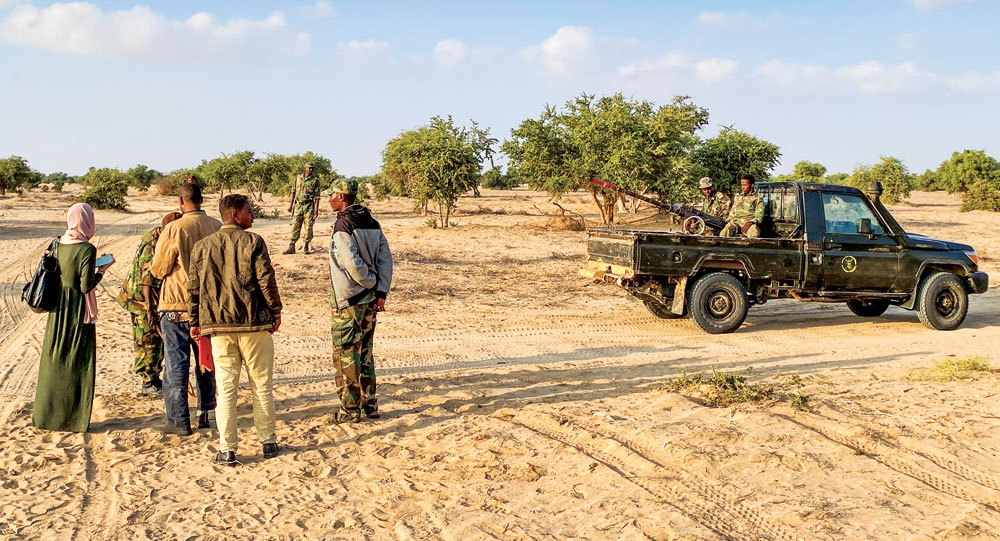
When following up on information about poachers that may put the rescuers in danger, the rescue crew calls on local police or other authorities to accompany them. Here, military accompanied this countertrafficking patrol in Somaliland.
![]()
Once the route from South Sudan to Yemen is shut down, it’s just going to shift, Spalla says. “We need to have enough control and access throughout that geography so that when it does shift, we can be there to meet it.” This is a strategy he followed in his work in counter-terrorism and one he’s put into place as a counter wildlife trafficking expert throughout the last six or seven years. “One thing I know for certain is as long as there’s a demand, there will be people willing to kill and traffic wildlife. Our plan is to take what works in Somaliland and export that to Puntland, Ethiopia, Djibouti, and South Sudan.”
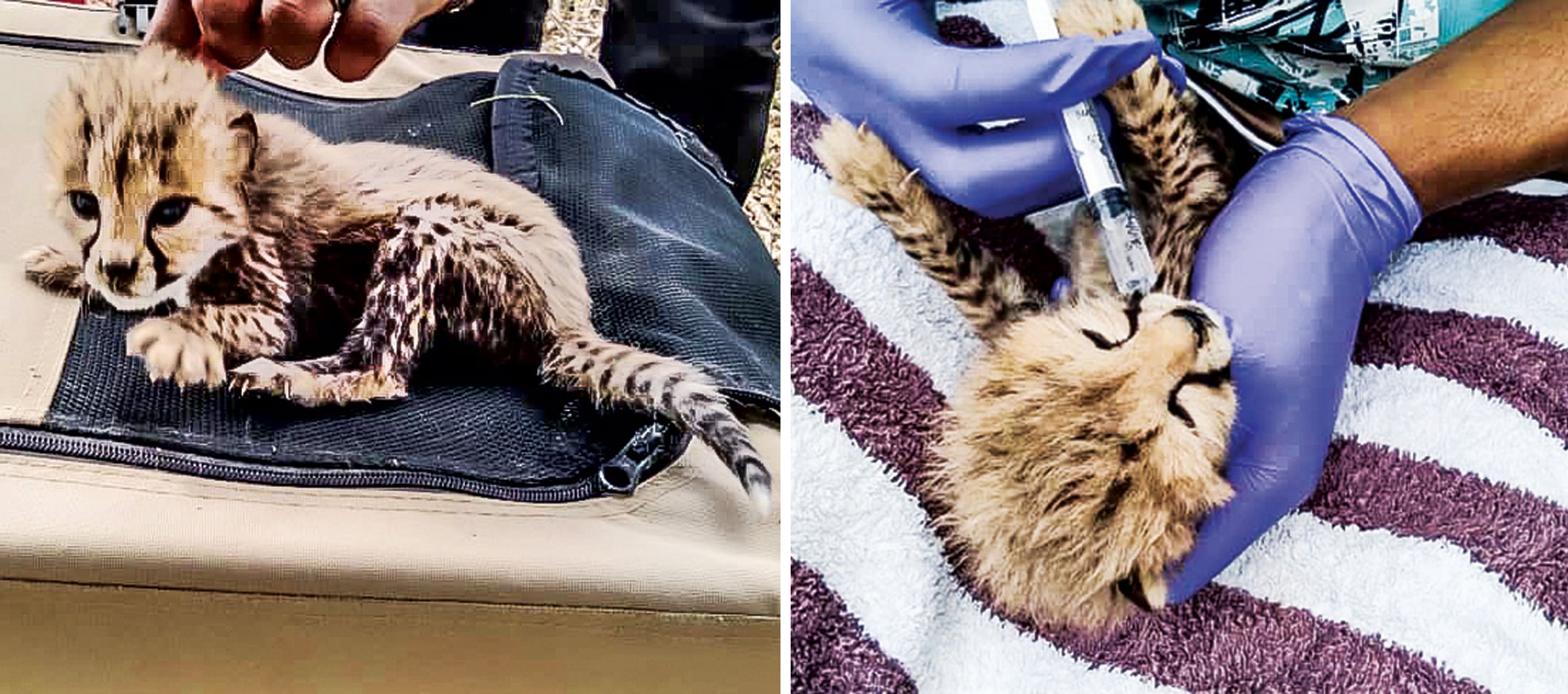
Mother cheetahs are killed by poachers so their cubs can be sold to smugglers. Many of the cubs are transported to the Middle East where they are valued as pets and status symbols. Above left: A cheetah cub that was rescued from smugglers. Right: A cheetah cub rescued from smugglers is attended to by a veterinarian.
![]()
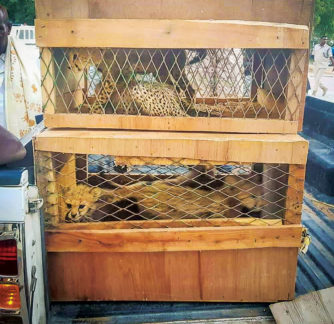
These cheetah cubs were confiscated from smugglers by Somaliland authorities in Hargeisa Somaliland.
As an Army Ranger Intelligence Specialist from 2005-2009, Spalla honed his intelligence skills in Iraq. This experience gained him an invitation to Ft. Bragg, North Carolina, where he would go on to complete more than 20 deployments as a Special Operations Counter-Terrorism Intelligence Specialist, working throughout the Middle East, Europe, and Africa.
By 2015, many of the lessons Spalla learned in Africa—regarding terrorism, crime, poverty, and disenfranchisement—came together around wildlife and protected landscapes. “Hubs of criminal activity in Africa are basically ungoverned spaces, and what governing they have is underfunded, under resourced; there’s no training or capacity.” He believed he was being called, that his skillset could make a difference there. “So, I formed my own company, Agile Analytics Group, brought in some special operations people from the U.S. and South Africa, and we started marketing our services.”
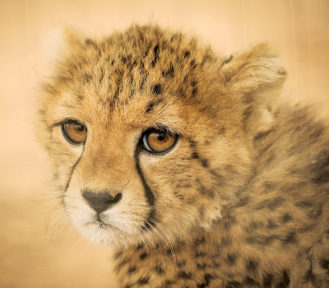
Cheetah cub
Somaliland is a port of entry for the African continent, where ancient smuggling networks have been operating for thousands of years, says Spalla. “We call it smuggling today, but for thousands of years, moving animal products to the Middle East, and the Middle East moving their products [into Africa] were normal commercial activities. The cultural, familial, economic, and political ties are strong, going back generations.”
Fewer than 7,000 adult cheetahs are left in the wild, according to Rachael Bale, executive editor of National Geographic’s Animals desk. Bale authored a September 2021 National Geographic article highlighting the work of Spalla and his team. “We’re sending this NatGeo article to every senator and congressperson who’s ever said anything about wanting to do something about wildlife trafficking,” says Spalla.
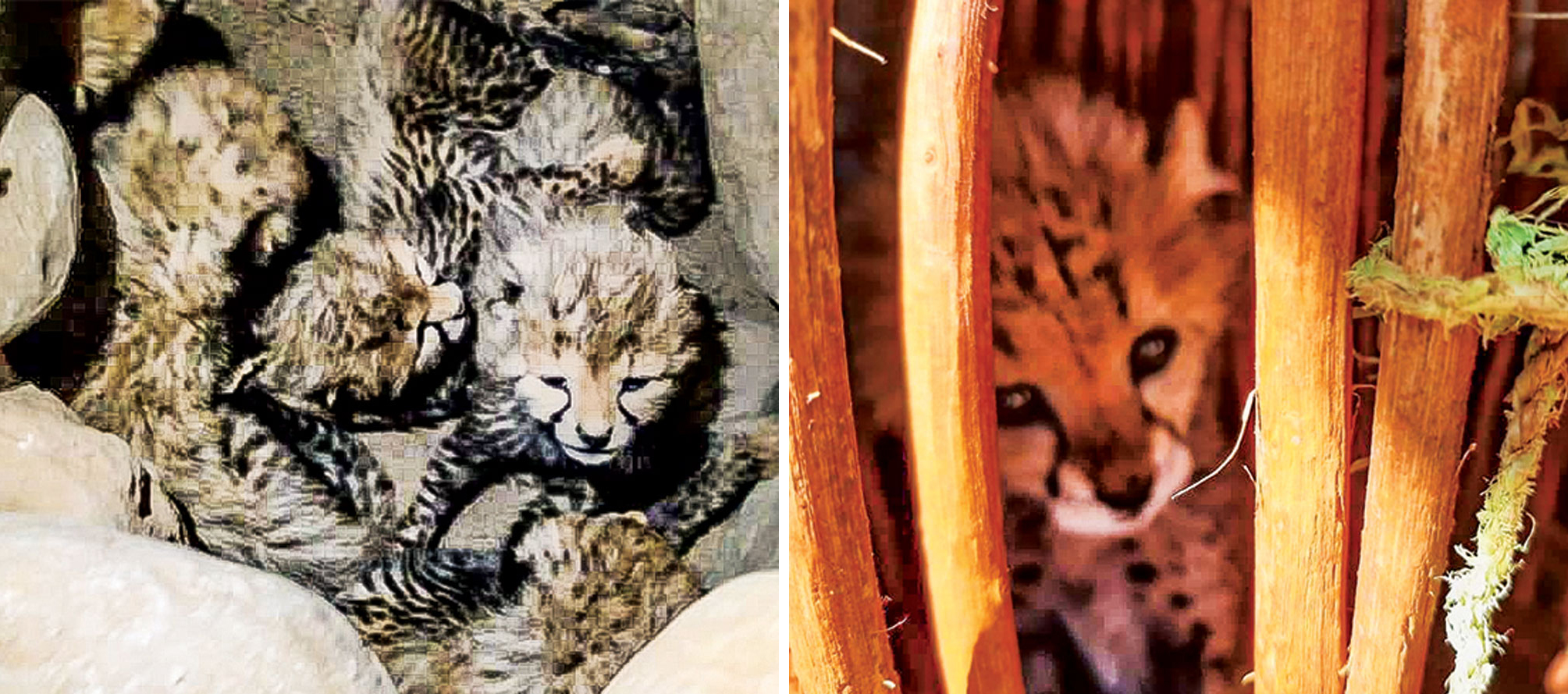
Left: Multiple cheetah cubs were found during one rescue operation in Western Somaliland. Right: Cheetah cubs being transported in a traditional basket in Western Somaliland.
![]()
Spalla says he’s less concerned about the smuggling networks than pulling wildlife out of that process. “The smuggling networks for legal and illegal products will continue after our work is complete. Right now, my priority is to try to stop the movement of animals, because once they’re gone, they’re gone.”
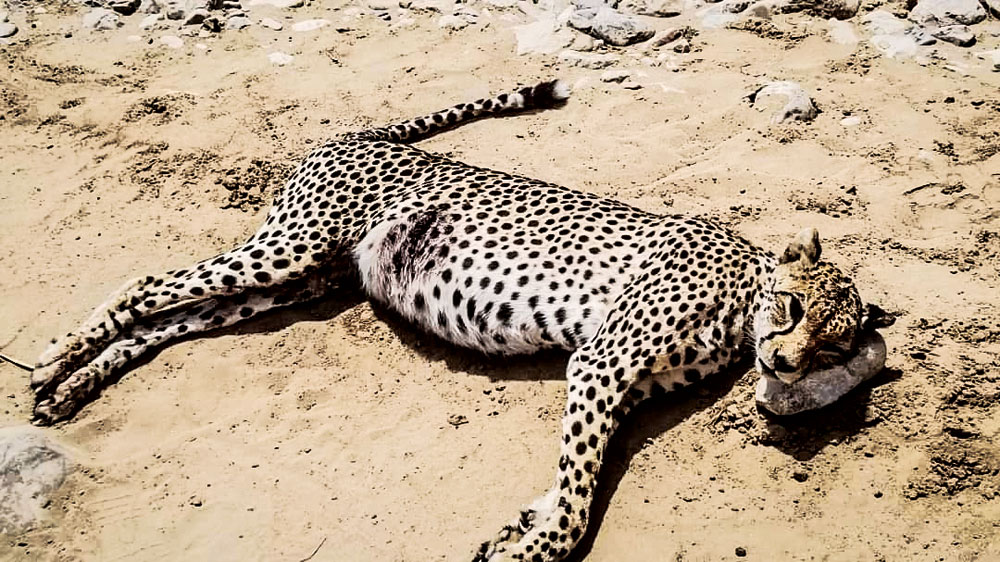
It’s not unusual for mother cheetahs to be shot after killing a goat to feed their cubs. This cheetah was shot by a Somaliland pastoralist (goat herder) for killing one of his goats.
![]()
Spalla is in the final year of a mental health counseling graduate program at Regis University where he is focusing on combat PTSD, addiction and childhood trauma. He has volunteered at the Haven of Hope homeless shelter and will soon intern for the Colorado Department of Corrections as a mental health counselor. His interest in mental health counseling grew out of his African experiences. “My heart will always be in Africa. I’ve never felt more like me than when I was there, even in the worst situations.”
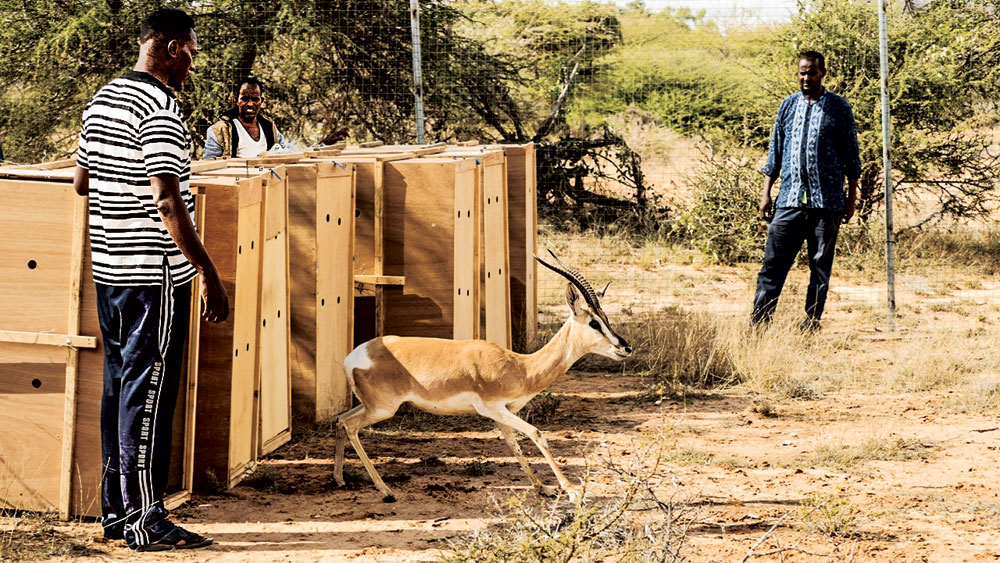
These gazelle, confiscated from private owners following adoption of the 2015 Wildlife and Forestry Law, were held at a military base for a few years and are shown being released to the Debbis Forest Reserve.
![]()
To learn more and/or support Spalla’s efforts to save wildlife, visit Instagram at: @timothyspalla and @hornofafricaalliance or the Go Fund Me site.
Photos by Tomas Maule
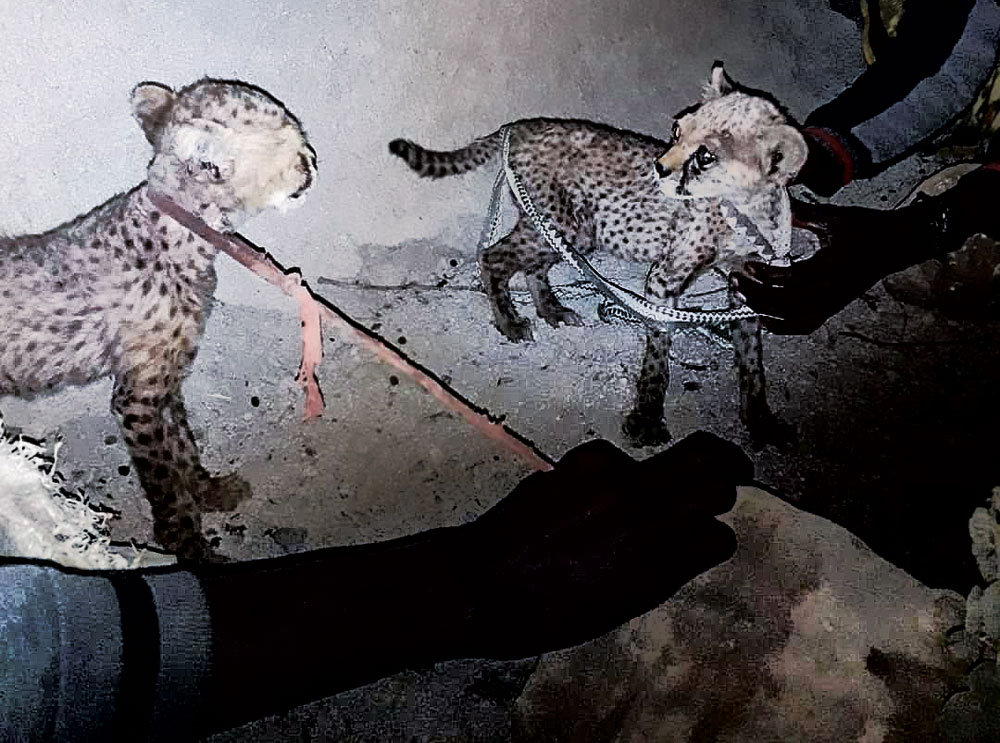
Though laws prohibit possession of cheetah cubs, some are still acquired by local residents. This photo of pet cubs was taken by a local resident before the cubs were turned over to Spalla’s rescue organization.




0 Comments